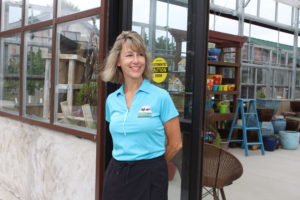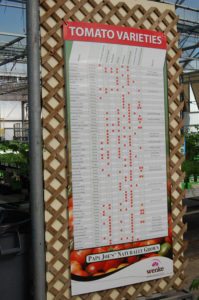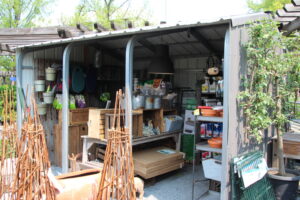
Who Coulda Thunk it?
As I sat down to write this column in mid-November 2020 and thought about the 2021 season before us — with all of the challenges and opportunities that we’ll face — it was impossible not to take some time to reflect on the incredible disruptions of the past 10 months.
This time last year, you were putting the finishing touches on your spring plans and in the throes of implementing them. You were eagerly anticipating a solid year of sales, looking forward to a relatively calm and “normal” season with the only major variable being the weather. You had things under control; life was good.
Ten months ago, who coulda thunk that a tiny microbe, a virus we now know intimately as COVID-19, would have the incredible power to turn our world and lives upside down, resulting in the most significant societal and behavior changes we’ve experienced in recent history.
Sure, we’ve been through crises before, like the Great Recession of 2007-2010; but as impactful as that was on many companies and individuals, it was mainly financial in nature, and, once we recovered, life and the ways we did business pretty much went back to the pre-recession “normal.”
Disruptions Abound
This COVID-19 crisis, however, has been more invasive and disruptive in many ways — the health impacts and the reality that it can kill; the fears, uncertainty and unpredictability that we didn’t know how to treat and control it; we didn’t fully comprehend the effects on work, learning, retail and every other element of our lives; we didn’t know what limitations would be imposed and for how long by governmental authorities to help mitigate the spread of the virus; and we had no idea of the scope of what would be required to exist during this pandemic, nor any idea of when it might end.
For many industries, the pandemic has been crippling, especially for the entertainment, hospitality, travel, small business and restaurant industries, with long-term consequences. Restaurants have been restricted to carry out and delivery with some sit-down dining allowed outdoors and inside with major capacity restrictions; it’s estimated that 40-50% of all restaurants will not survive as a result. Lack of sales and capital (family-owned businesses have exhausted their personal savings and can’t secure bank funds) are forcing the closure of many storefronts, with estimates that 50% may cease to exist before the virus is under control.
Societal impacts resulting from the pandemic are many and widespread, including:
- Remote working. To minimize contact/virus spread and supported by internet connectivity and Zoom meeting capabilities, many companies have resorted to total or hybrid work from home environments, especially impacting metro areas. This policy has resulted in reduced foot traffic for local businesses that relied on these workers, and a challenge to both commercial and residential metro real estate values as remote workers, now able to work from anywhere, are relocating from metros to the suburbs/ex-burbs.
- As more elementary, high school and even colleges/universities move from in-school and hybrid classes to total remote learning, significant barriers to learning are becoming more evident. First, many homes do not have the connectivity or devices to allow online learning. Next, many districts do not have the staff or expertise to provide in-person online teaching, but rather provide taped instruction with no ability for student/teacher interaction. And many studies have shown that high achieving, special needs and slow learners need that one-on-one human interaction to succeed academically, leading many to question the effectiveness of remote learning.
- Labor force. Lockdowns and restrictions have resulted in substantial furloughs and layoffs. One of the most impacted labor segments — women who have jobs, but who cannot work remotely — is being challenged because they need to stay home to supervise their children who are in remote learning programs.
- Interpersonal relationships. Limiting personal contact to reduce the potential for virus spread has been one of the primary weapons promoted by health experts. That said, human contact is one of our basic needs and the lack of this portends challenges for mental health and a functioning society. Yes, technology such as Zoom and FaceTime are valuable to stay in touch, but they can’t replace the human need for a hug or embrace, a kiss, or shaking hand. As a personal example, due to age and health issues, I’m considered high risk and am not able to travel to Virginia to see my newest grandson born in November. Sure, I’ve spent a lot of time seeing him on FaceTime, for which I’m very appreciative. But FaceTime can’t replace that strong desire to cuddle with my grandson, enjoying that new-baby smell, or him wrapping his hand around my finger. I’ll meet him someday when this pandemic is over, but those first moments can never be replaced.
In addition to pure play, online retailers like Amazon, surviving (and thriving!) brick and mortar retailers, both large and small, have succeeded by capitalizing on consumer needs and mitigating fears, and innovating to address them. In addition to implementing and promoting their in-store safety protocols, they’ve ramped up their online presence for ordering/direct fulfillment, and executed contactless experience strategies such as BOPIS (buy online pickup in store), and home delivery, all directed to address the consumer needs for convenience and personal safety.
A Good Year
Despite a very rocky start to Spring 2020 due to lockdowns and restrictions, IGCs beat the odds and experienced an amazingly good year! Our good fortune was from both our existing and the estimated 15-20 million new customers who found reasons to experience the benefits of our products …. and your stores. With stay-at-home mandates and remote working, consumers recognized the need for a reset to the work/life balance, had more flexibility and time on their hands, and were looking for something fulfilling to do — an activity that provided exercise, an outlet for stress, and something that added beauty to their lives. Thankfully for us, it was gardening that filled these needs.
Even with a vaccine for COVID-19 on the horizon, the Spring 2021 season will be in the books before anyone declares victory over the virus and an end to the pandemic. Most of the challenges you dealt with in 2020 and your responses to them will still apply in Spring 2021. And there’s no reason to expect that we (and your customers) can’t enjoy the same successes with you and your products again this spring!
I’m confident, however, of one thing that you shouldn’t overlook — unlike the Great Recession of 2007, where everything tended to go back to “normal” when it was over, many of the societal changes are here to stay, such as working remotely and contactless experiences. Convenience and safety are paramount in consumers’ minds, and they’ll be looking for industries and retailers who can continue to innovate and demonstrate a leadership role in addressing their ever-changing needs.
And we’re blessed that consumers have finally realized what we as an industry have known forever; the benefits of plants and flowers that add to their quality and enjoyment of life and lifestyle. Who woulda thunk it?…














 Videos
Videos





